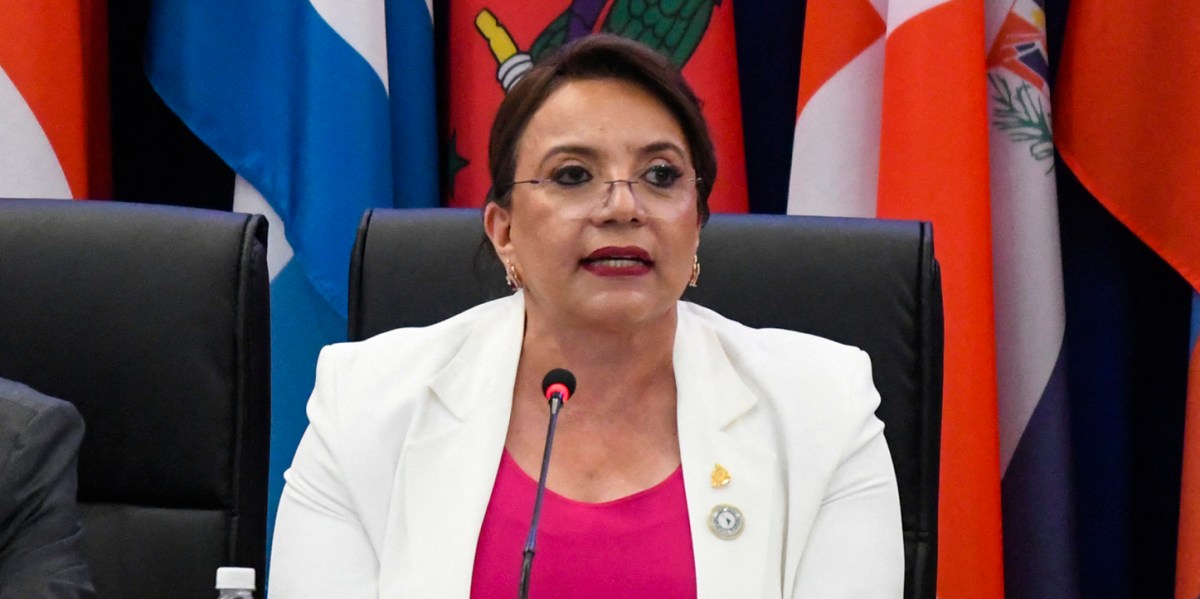
At issue are so-called ZEDEs created by previous governments of Honduras. The law that established ZEDEs — short for Zone for Employment and Economic Development — effectively carved out portions of Honduras and turned them over to American investors, who operate as effective sovereign governments. The ZEDEs could one day control 35 percent of Honduras’s territory, according to the United Nations, which has said that the zones raise human rights concerns.
It took enormous political muscle more than a decade ago to force the ZEDEs into law. They only became possible when Castro’s husband, Manuel Zelaya, was removed in a U.S.-backed coup in 2009.
After Zelaya was ousted, a new election brought in President Porfirio Lobo Sosa, who quickly moved to undo Zelaya’s social reforms, attacking workers rights and reneging on land reform efforts. The Supreme Court struck down the first version of the ZEDEs law as unconstitutional, but after the constitution was amended and four new justices were added to the Supreme Court, the law stuck in 2013.
Lobo Sosa’s rise was fueled not just by U.S. support but also by narco-trafficker cash, according to U.S. prosecutors who convicted Tony Hernández, the brother of former President Juan Orlando Hernández, for trafficking “monumental” amounts of cocaine. Juan Orlando Hernández was Lobo Sosa’s successor and was himself convicted of drug trafficking earlier this month in a U.S. federal court. He was president of the National Congress, Honduras’s legislative body, from 2010 to 2013, and was a primary mover of the ZEDEs legislation. He also led the overnight takeover of the Supreme Court that enabled their implementation.
Castro quickly and successfully moved to repeal the ZEDEs law in the face of intense bipartisan U.S. pressure to maintain them. The American response has been to repudiate the very idea of Honduran democracy and sovereignty, with investors using the World Bank’s ICSID to force the new Honduran government to respect the policies carried out by the former president now sitting behind federal bars.
of course crypto bros are all over this shit



Unwinding the damage caused by this has be a nightmare. Some of these zones were using bitcoin as a regional currency (or at least one of their legal currencies). I bet an unreasonable number of locals working in those zones were paid in bitcoin.
So now what? You dissolve the zones government, reintegrate it as a state, reinstitute its government structures, and hold new elections?
Ian Rand must be spinning in her grave.
I suspect the crypto part employs like 20 people for that offshore status tbh. And being paid in bitcoin is not that much of an issue. Rather dollar power those bros have to go to court with this shit can fuck them up (for interests of some smoll bean import/export business with some 2 billion revenues and 0 profit)